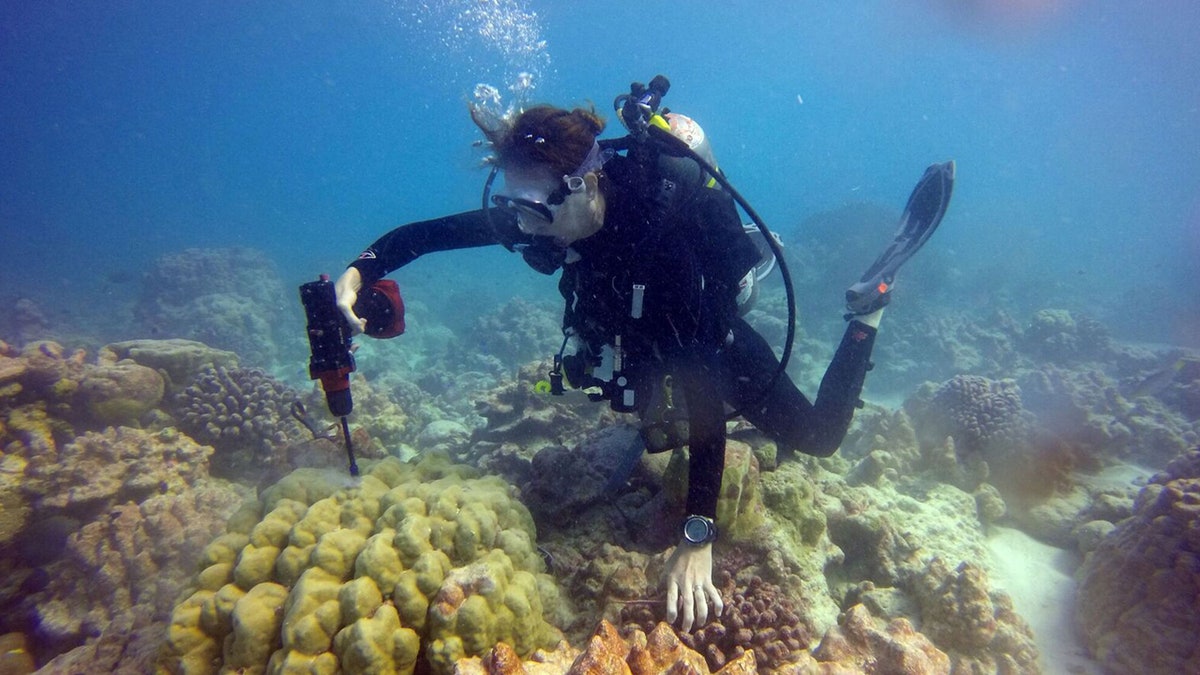
In this photo provided by Kim Cobb, shows Georgia Tech climate scientist Kim Cobb in November at the remote Pacific island of Kiritimati, finding a bit of hope and life amid what in April was a ghost town of dead coral. (The Associated Press)
For years, human pollution has been killing coral reefs around the world. But now, scientists think they may have found a way to save them.
Previously, researchers looked for new ways to curb our waste — for example, by fighting climate change or by cleaning up the ocean. But a new paper published in Nature argues that we should be focusing more on strengthening the reefs, to make them immune to pollution.
“If we are to conserve or restore [coral reefs], we need to understand coral health — what drives tolerance and how can we promote it,” Caroline Palmer, visiting research fellow at the University of Plymouth and author of the paper, writes in a press release. “If you have a strong immune system, and the energy to support it, you are more likely to be healthy and to survive adverse conditions.”
Palmer has been studying the immune system of coral reefs for the past decade. She looked at coral’s immune mechanisms and found that corals with higher immune systems were less likely to die or to be bleached.
“There is currently a lot of interest in creating more tolerant corals through genetic engineering and of restoring reefs by targeting more resilient corals,” she says. “I fully support these approaches, but believe understanding what drives coral health will be key to their success.”
This story originally appeared in the New York Post.




















